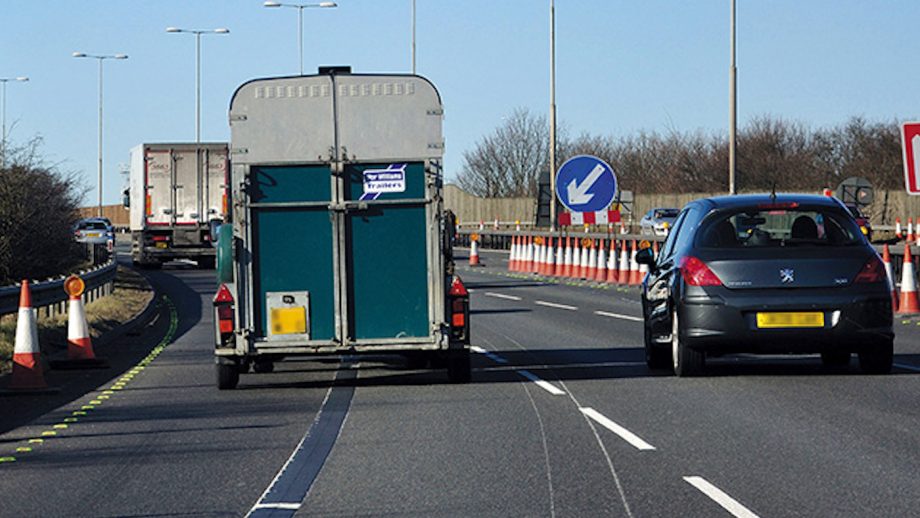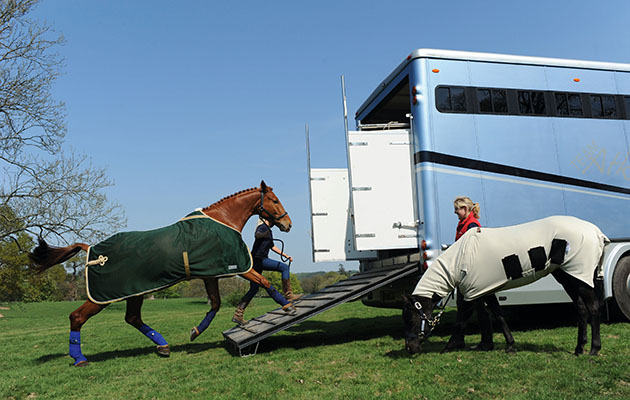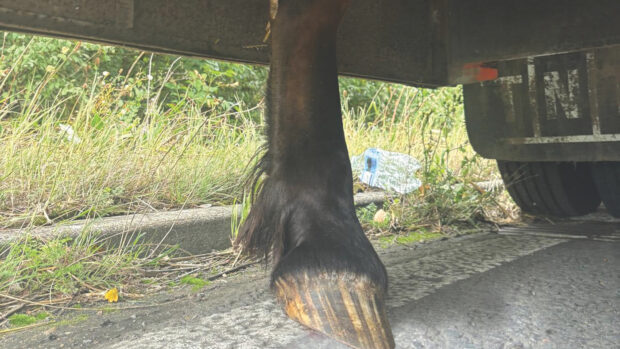The DVSA has reminded horsebox drivers of when an operator licence is required for transporting horses.
A DVSA spokesman said examiners recently spoke to 20 horsebox owners at Hickstead and were “delighted” to find almost all the vehicles were well maintained, and drivers’ hours rules were being followed.
But a reminder was issued about when an operator licence is required for transporting horses. This applies when a horsebox owner driver is paid money (directly or indirectly) to transport horses or uses the horsebox for a “professional activity”. Even if a horsebox is only used for commercial purposes for a short period such as one day, an operator licence is still required.
“You might not charge somebody directly for transporting a horse but if you charge them for livery or training and offer transport as part of the service, that is considered ‘commercial use’ and you would need an ‘hire and reward’ operator licence if the vehicle or vehicle and trailer combination is over 3,500 kg,” said the spokesman.
The DVSA also states that drivers who receive payment “such as prize money as a result of transporting horses” must also have an operator licence. A spokesman told H&H at roadside checks DVSA examiners are trying to determine whether there is a “professional interest affiliated with the transaction”.
The DVSA spokesman explained: “What they are trying to assess at the roadside is, whether there is a business involved, and if this is a money-making venture – or someone who has a pastime and wants to compete with their horse in their spare time.”
The DVSA also confirmed to H&H that if an individual competes “as a hobby” and won prize money, they would not be deemed as operating as a business or for “hire and reward”.
“These individuals would be exempt, particularly if they were employed elsewhere and riding was a weekend leisure activity,” said the spokesman.
The type of operator licence needed depends on the vehicle, where it is used and who the horses belong to. A restricted licence applies for those who have a horsebox or vehicle towing a trailer, which has a maximum authorised mass of over 3,500kg and are transporting their own horses for commercial purposes. If they do not own the horses they are transporting, a standard national operator’s licence is needed for UK-based journeys. For non-UK journeys, a standard international operator’s licence is required.
Penalties for transporting a horse without the necessary operator licence include the vehicle being impounded – and scrapped after 21 days – unless an appeal is launched to the local traffic commissioner. Operators can also be fined up to £5,000.
You might also be interested in:

Baler twine tied to outside of horseboxes – DVSA clarifies the rules

Operator’s licence warning after rider finds himself in court *H&H Plus*

Horsebox drivers must follow rules or risk losing everything

Subscribe to Horse & Hound magazine today – and enjoy unlimited website access all year round
Horse & Hound magazine, out every Thursday, is packed with all the latest news and reports, as well as interviews, specials, nostalgia, vet and training advice. Find how you can enjoy the magazine delivered to your door every week, plus options to upgrade your subscription to access our online service that brings you breaking news and reports as well as other benefits.




